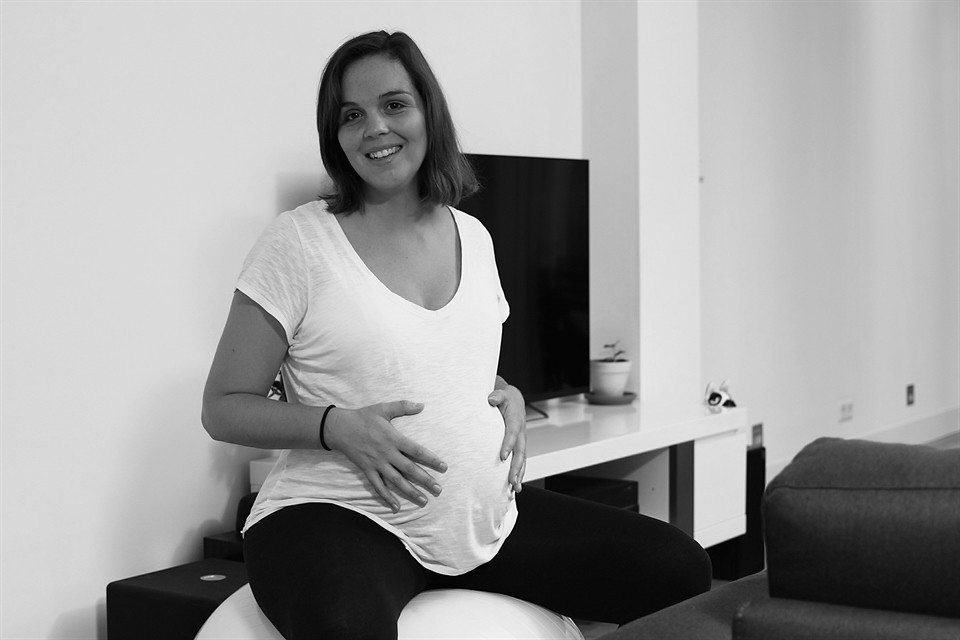
On having a baby in the Netherlands...
About a week after I found out I was pregnant - and the shock and four letter words had started to quieten down - I finally Googled "giving birth in the Netherlands". Overwhelmingly the top results all made very focused and deliberate mentions of how the Netherlands has the highest rate of home births in the Western world (I tried hard to get some up to date stats for this post but found a number of different figures from 20 - 30% but many were out of date and not backed up with footnote sources - sorry!). My initial reaction to this was of horror, fear and intimidation. I was instantly reminded of how un-Dutch I was insofar as I wasn't six foot tall, super-slim, blonde and a master of at least ten different sports. I am British. I am five foot six, pear-shaped, have dark brown hair and am only really half-decent at swimming, running and snowboarding. So I put my phone down pretty promptly and planned on discussing with my partner NewMan the possibility of returning to the UK and the familar warm embrace of the NHS to give birth.
However, we didn't. We stayed in Amsterdam and I can honestly say I really enjoyed my experience of being pregnant in the Netherlands. We generally had a very positive experience in terms of pre-natal, delivery and post-natal care.
You can find posts about what giving birth in a Dutch hospital is like, as well as the two parts of my son's birth story - part one here and part two is here. But this one will deal specifically with what antenatal care is like in the Netherlands, and specifically in Amsterdam.
First off, while I speak a little Dutch, you should know that we conducted all appointments in English, pretty much without issue because my partner doesn't speak much at all (unless you include ordering beers in a bar). In fact, I would say the only problem I had was when I started to try and arrange appointments in Dutch and I wrote down the wrong time. That said, we do live in the central suburbs of Amsterdam in an area that has long been home to ex-pat and English-speaking families so experiences in other areas may vary considerably.
In this post I share my experience of the care offered to me while I was pregnant and preparing to give birth. Please note that this is my first baby so I have no other experience to compare it too, though obviously I have some knowledge of the British system as I have friends and family who have given birth there.
When it comes to pregnancy in the Netherlands, midwives are king... or queens.
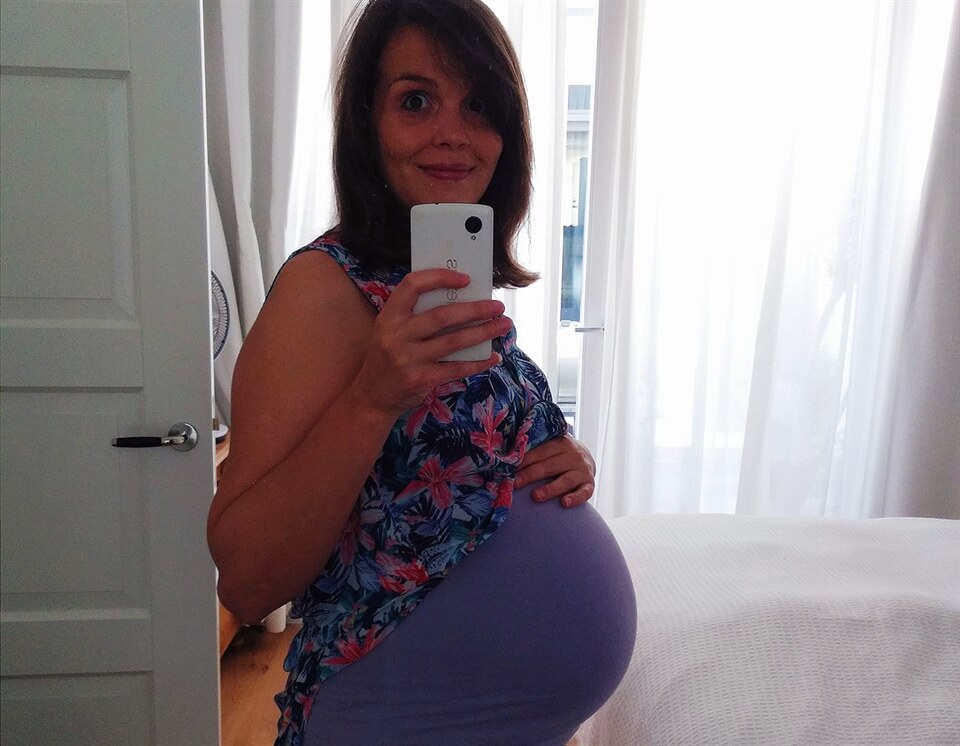
We found out we were expecting a baby a few days before we boarded a plane to
South Africa for our friends' wedding (typical us in many ways!) so when we returned we made an appointment with our
huisarts (GP/family doctor) to tell him our happy news. Sitting there in his office we soon felt very awkward as he asked us why we were telling him.
It turns out that all prenatal care - and even pre-conception care including fertility advice - is handled by midwives and doesn't require any input from doctors or hospitals unless there is medical cause. Of course, if you are already considered at risk because of a pre-existing medical diagnosis or you have experienced miscarriages then you will be looked after by a midwife team based in a hospital and will have appointments with them and with consultants. Our doctor recommended a midwife team local to us, he wished us luck with the pregnancy and we sheepishly left his office. The next morning I registered with this team of midwives and I didn't see my huisarts again until nearly a year later when my baby boy had an ear infection but he was kept informed about the birth via the hospital and midwives.
In Amsterdam (and I suspect the rest of the Netherlands) you will find midwife offices scattered around neighbourhoods and it obviously makes sense that you register with one that is near your home. Some practices are connected to larger clinics or small hospitals where you they have ultrasound scan equipment, but mine was quite small - just five midwives and a part-time receptionist - and the most technical piece of equipment they had was a doppler machine to listen to the baby's heartbeat.
Before going to my first appointment with the midwife, I did some more reading about giving birth in the Netherlands to see if this was really what I wanted to do. I read first hand accounts written by Dutch women, ex-pats and midwives. I even found studies that compared prenatal care in the Netherlands with other countries, including the UK. So before I even went to my first appointment I knew that prenatal care in my adopted home country was pretty unique. And in many ways, it is very special. But I was still a little scared about potentially only seeing a midwife during my pregnancy as opposed to a more medically qualified nurse, doctor or consultant.
A lot of that fear disappeared after my very first appointment. With my partner (who I call NewMan - don't ask!) by my side, it was explained to me how pregnancy in the Netherlands isn't considered a medical condition, it's a natural thing for a woman to experience, and it is for that reason that all being well, midwives and not nurses or doctors manage your check-ups and keep an eye on both the mother and the baby. They explained that they like to alternate who I had my check-ups with so that I would meet all of the different midwives, as it could be that any one of them would be present for the birth.
At that first appointment, it was too early (9 weeks) to listen to the baby's heartbeat but I was given instructions to make an appointment with a radiography clinic (that was attached to another midwife practice) just over a mile from our house for a dating scan (or "echo" as the Dutch call them) as soon as possible. This was different to the UK where normally the first scan happens at 12 weeks. I was also told to get some blood tests done, which I had to go to a different drop-in clinic, again very close to where we lived. From what I can gather this is a standard series of tests at the beginning of a pregnancy in most countries.
Unless there is a reason for you to be referred to a doctor or hospital, you remain under your midwives' care throughout the pregnancy and throughout the birth and post-natal period. This means, that you could potentially give birth without even speaking to an obstetrician or gynaecologist. I know for some people - especially Americans - this will be a bit unusual, but as my pregnancy progressed I warmed to this approach. I liked being a pregnant woman, not a patient. I also really enjoyed getting to know the midwife team and wondering each time I met one of the ladies if they would be the one to deliver my baby. I found this approach to prenatal care very personal, informal and incredibly reassuring, and it was actually one of the reasons I started to completely change my mind about home births...
Giving birth at home or hospital? ....Or in a hotel?
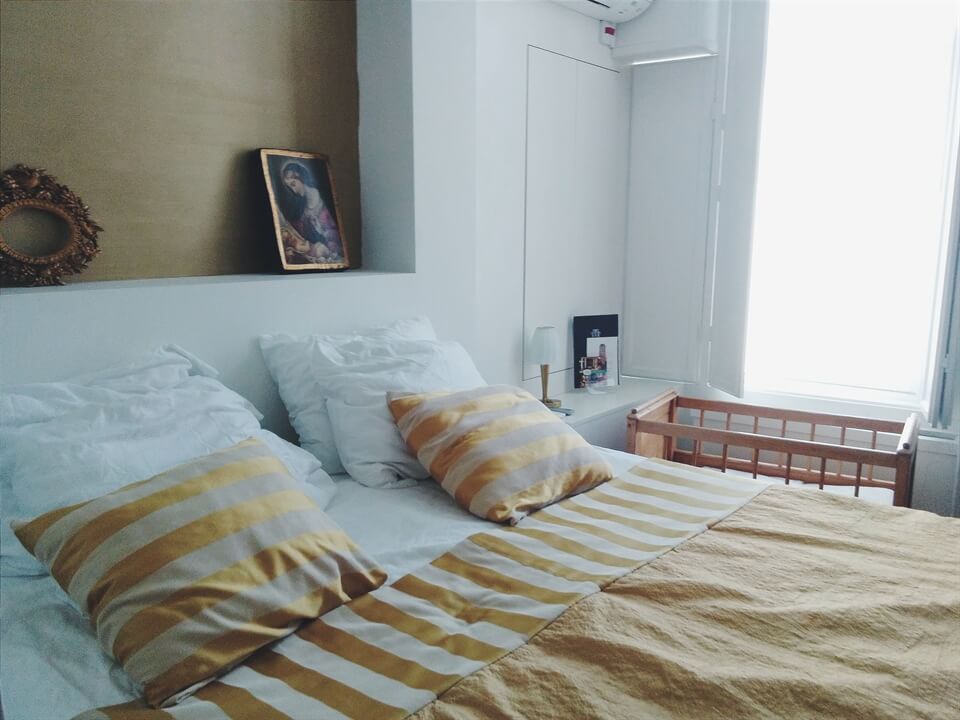
So, do you have to give birth at home in the Netherlands?
No, absolutely not. Where you give birth is your choice, unless there is a medical reason that requires you to give birth in hospital. And just to be clear, there is no messing about on this. If there is the slightest suspicion you or your baby need extra help or support when it comes to giving birth, you are immediately referred.
Should you choose to give birth in the hospital, you can then have your original midwife team continue your care, however, once in the hospital, if you opt to have a medical intervention, i.e. pain medication like morphine or an epidural, then you are handed over to the hospital midwives.
Having read so much about stoic Dutch mothers giving birth at home while doing the ironing, I was surprised to find that it is VERY common for first-time mothers to choose to give birth in the hospital. At my pre-natal yoga class we, a group of 18 pregnant women, were all asked where we wanted to give birth - all but two of us raised their hands to say hospital and the majority of the women there were Dutch.
It's important to know, that you do not have to make this choice until the day comes (at least I didn't), though my midwife did ask me to write a loose birth plan around 34 weeks. I'd actually describe it as more of a "list of wishes" rather than a birth plan, which is a much more accurate way to describe it as having any kind of plan for giving birth is misguided and almost laughable.
All this being said, giving birth at home is still very ingrained in the Dutch pysche and system. This is demonstrated by the fact that it is "free" to give birth at home, but not at hospital. Essentially, the basic level of health insurance that all Dutch residents must have includes all of your necessary maternity costs (i.e. midwife appointments, requisite blood tests, any medical procedures or medically required additional scans etc) and a home birth is part of that. (I could write another post on health insurance in the Netherlands but it's simplest to say that the basic level of insurance is price capped by the government though you can choose which provider you go with and in 2015 it cost around €80 per month for this. You can, however, choose to pay for additional levels of cover and that's what we did so that a hospital birth for non-medical reasons (i.e. by choice) would also be covered. Even if you don't have additional insurance, the cost of giving birth in hospital is very, very low compared with other countries, like the USA. In 2015 it was around €360 and this was a one-off, flat-rate cost that I believe didn't alter regardless of what care you received or how long you were in the hospital. I will talk a bit more about this in the post I write about giving birth in the Netherlands.)
As my pregnancy progressed - smoothly and without even a second of nausea or heartburn (lucky me!) - I felt more supported and thus more confident about giving birth at home. However, my partner didn't feel exactly the same and so we spent many hours and days discussing what we should do. Part of this discussion involved him stumbling upon the "
Geboortehotel" in Amsterdam.
The Birth Hotel as it translates as, is exactly what it sounds like. It's a hotel where you stay to give birth. Like the hospital, you can have your own midwife with you and in your room you have everything you need for a non-medicated birth including birthing pools and gas and air, which (SHOCK HORROR UK!) is not yet available in most Dutch hospitals. Needless to say if anything happens that means you have to go to hospital then that's where you go, but there are no doctors on site, only midwives, midwife assistants and maternity nurses. All being well, you can stay for as long as you want afterwards, but the costs of doing so aren't covered by your insurance. In my mind, having your baby at the Geboortehotel was essentially like having a home-birth experience without having to clean up the mess afterwards, plus you have a mini bar in your room!
My partner and I visited the Geboortehotel and we were very keen on it, but ultimately we both chose to opt for a hospital birth for our first baby, and as it happened, that probably would have been the outcome even if I'd planned on a home birth. (As a side note, we do have friends who had a baby in the Geboortehotel and they speak very highly of the experience.)
Getting ultrasound scans, or "echos", during pregnancy in the Netherlands
On 29th December 2014, my partner and I saw our little boy for the first time.
I don't think I'd ever been so nervous before an appointment or procedure, but as a woman held a white device to my belly, and pointed to a bean shaped blur, I suddenly felt hugely relieved that it was a real, growing thing rather than a hamburger or a slice of pizza that had taken a wrong turn. Needless to say, I was still finding the whole experience a little surreal and couldn't quite believe it was happening. But that little blob on a screen that I could barely make out, and a kind, firm nod from the woman doing the scan - who was also a midwife - all helped confirm that this was really happening.
Before we left the ultrasound clinic we were asked if we wanted to have the nuchal translucency (NT) ultrasound scan to check for Downs and other chromosomal conditions, which we would have to pay for. This is done in combination with a blood test (hence it is often called the "combined test"). This time I had to go to the hospital for the blood test. This was my first time going to the hospital that I knew I would potentially give birth in.
I believe they recently changed the law in the Netherlands and now anybody who wants to have the combined test has to pay for it (it was around €160 for us in 2015). We decided to get the test done and so we had this scan less than four weeks later, again at the same clinic we had the first one. I have also found out that as of 2018 you have the choice between the combined test or the NIPT test which is just a blood test. Both are conducted at around 11 weeks. Your midwives will be able to explain more about this.
The next, and normally last, scan was done at 20 weeks, in which measurements of body parts are done, and the heart and other organs are checked. For this reason it was quite a long scan but I remember lying there and loving every single second of seeing our boy in mostly ways I couldn't decipher but I didn't care. I could see him move and occasionally hear him kick or throw an arm out towards the wand. It was a strange and sort of surreal bliss. This was also when they asked if we wanted to find out the sex and we did. I was floored when she said it was a boy (I'd been convinced otherwise!) but what was more surprising was how happy I was about this; I don't normally like being wrong!
Unless there is reason to, no further scans are typically offered to pregnant women in the Netherlands. I remember how frightening that felt to me; to not see my baby for 20 weeks - but as it happened our little man was showing up very big in our 12 and 20 week scans (like off the chart big for stomach and head!) so they referred us to the hospital to have follow-up scans at 26 and 32 weeks. This is a good example of just how cautious Dutch midwives are; there was no reluctance to get additional support from medical professionals.
For these scans, a OB/GYN consultant conducted the appointment. Similar to the 20 week scan, she did much more in-depth checks of his length, and the circumferences of his head and stomach. At both scans we were advised that although he was big, he was following "his own path" rather than slowing down or accelerating suddenly and so we had nothing to worry about. I found these extra scans and the extra level of care we received very reassuring and really have nothing bad to say at all about our experience at the hospital, aside from a long wait before one appointment - but hey, that's life and a price worth paying for excellent, medical care!
As you can in other countries, you can pay for additional scans and we did once do some research into finding a clinic in Amsterdam for a 3D scan so we could maybe see our baby's face, but we decided against it at the last minute because they still don't know for sure what the risks are of ultrasound scans on babies and we'd already had more chances to see our guy than most. Furthermore, I sort of wanted it to all be a complete surprise.
My appointments with my team of Dutch midwives
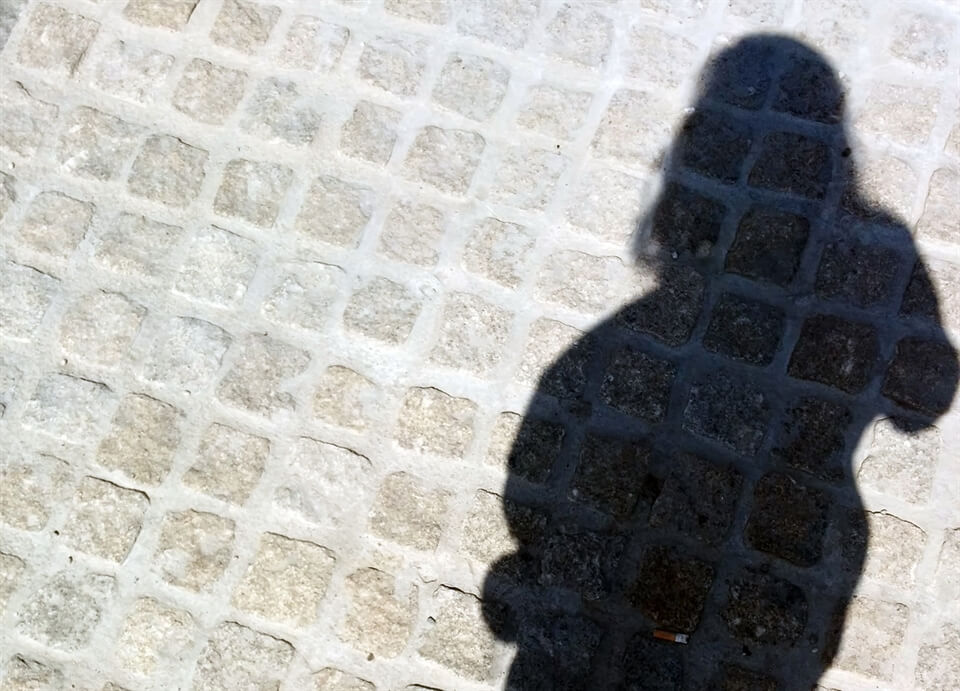
Aside from the scans and blood tests (I was also tested for gestational diabetes because of Baby Bird's size - I don't believe it's a standard test here - and FYI I was never asked to give a pee sample at any of my midwife appointments) all of my check-ups were at the midwife practice. At first, appointments were every 3-4 weeks and then as my due date got closer, they were every two weeks. At every appointment my blood pressure was checked, we listened to the baby's heartbeat and the midwife would manually check my belly. I was also routinely asked how I was feeling, if I had any questions or worries and on more than a few occasions I was specifically asked if I had concerns about being pregnant and giving birth away from home. Of course, the midwives I saw varied in personality and bedside manner - from the giggly-and-couldn't-keep-her-hands-off-me midwife to the can-you-put-the-blood-pressure-strap-on-yourself? midwife - and I felt warmer towards a few compared to others, but there was something very reassuring in knowing that you have already met, many times, the woman who is going to be with you through the labour and birth of your baby.
At the first appointment with the midwife I explained that I had some concerns about anxiety and depression, mostly after the baby was born and also during the pregnancy. They made a note of this and at nearly every appointment they would check in with me about these concerns. In the third trimester, I also explained I had some fear about the baby being big and what problems this would potentially cause during the birth and while I was reassured - "Don't worry too much, it's hard to tell for sure how big he is, he may not actually be that big!" it certainly wasn't the case that they told me any lies like "Don't worry! You'll pop him out without even noticing" and I appreciate this honesty. I was regularly told to rest and sleep as much as I could and frequently I was reminded how hard my body is working to grow a baby. At no point did I feel I was expected to be anything other than what I am, i.e. it didn't matter that I wasn't six foot tall or good at speed skating. I just had to be myself, and to look after myself.
Around 31 weeks, I had a night and morning of feeling reduced movement by the baby and in line with the advice I'd been given, I popped down to the midwife's practice to explain this and see if I should make an appointment. The normal procedure would be to call but I lived so close, I just went in on my way to the supermarket. Although I felt like I was over-reacting, they took me very seriously and sent me home to lie down and focus on nothing but the baby's movements to see how many I could feel in an hour. If it was ten or more then that was a good sign, but they would also schedule the on-call midwife to pop in and check me. I got to ten in twenty minutes so phoned them to tell them I was feeling my baby more now. However, the on-call midwife still came round and she felt my stomach and checked his heartbeat which was strong and regular. I also popped in a few other times to ask random questions and to get a letter saying I was fit to fly when I went abroad. Not once did I feel like I was putting them out and I have to say this really reinforced my belief that I was getting excellent care. It also just felt a hundred times more relaxed than going to a hospital or doctor's surgery for appointments, which can count for a lot when you're pregnant.
Prenatal preparation and birthing classes in the Netherlands
Because we were paying an additional insurance premium we had a certain budget to cover some pre-natal classes - equivalent to the NCT classes you get in the UK. However, because neither my partner and I are proficient enough in Dutch (shame on us, I know) we couldn't go to the group classes our midwife recommended, but the same people who ran these classes also offered private sessions in English, so about six weeks before my due date, my partner and I had an intensive afternoon of Powerpoint presentations and lengthy Q&A sessions on giving birth and breastfeeding, all in the comfort of our own home, drinking tea and eating scones. I'm aware that this kind of service may not be available to all non-nationals in the Netherlands but certainly in Amsterdam it was very easy to organise and I found it incredibly helpful too. The only thing we missed out on having a private class was getting to know other parents-to-be at the same stage of pregnancy as us, as I often here this is the real benefit of these classes!
I also took regular pregnancy yoga classes, from around 14 weeks until 36 weeks and my partner joined me for a special pregnancy yoga partners session, which he said wasn't as helpful as the one given by a midwife, however, yoga was more about tackling
my anxiety during pregnancy than it was anything else so I do recommend it for these reasons. In Amsterdam several yoga studios run classes (in English) for pregnant mums so a quick Google search should help you find one near you. Some insurance companies would even cover these costs so it's worth asking them.
My overall experience of being pregnant in the Netherlands
When I first found out I was pregnant, my partner said something along the lines of... "Well, you'll have to stop cycling around seven months," and I nodded, uncertain that I would even get that far before feeling wobbly on a bike. As it happened, I was still cycling on and after my due date, albeit uncomfortably and very slowly. There is something about this "it's natural and normal!" approach to pregnancy in the Netherlands that definitely rubbed off on me. As long as my baby was doing well, and I was feeling good, why surrender to my "condition" and stop doing the things I loved - though of course I went off the booze and soft cheeses!
Even before I was pregnant I was very aware of how "out there" pregnant women are in the Netherlands. I saw them in restaurants, in bars, in music concerts and yes, cycling around the streets of Amsterdam. Had I not been so tired throughout my pregnancy maybe I would have gone to a few gigs too, though we definitely went to our fair share of restaurants. At no point did I feel unwelcome or unsafe as a pregnant woman in Amsterdam. I'm sure I would have felt the same in many other countries - this is the 21st century after all - but the overall attitude of those around me when I was pregnant definitely helped for me to relax into my pregnancy. Very rarely did people stop and ask me how far along I was - there are a lot of pregnant women around my area! - and although I heard stories of Dutch women delivering their own babies on their doorstep as they carried four bags of Albert Heijn shopping in each hand, when I mentioned to my Dutch friends (male and female) that I was considering giving birth at home, the overwhelming reaction was "Why would you want to do that? Go to hospital, it's safer!" so it's certainly fair to say that not every Dutch person is pro-home birth.
What I will say, however, is that there is still a leaning towards "natural" birth in the Netherlands, with epidurals not often being talked about in open discussions about giving birth. For example, in the UK my friends and I would quite comfortably joke, "Give me all the drugs you've got!" but I didn't get the impression this was the kind of approach Dutch women had, even if only in jest. Pain meds were only discussed at one of my midwife appointments, and even then I had to ask for them to go into more detail, rather than just giving me a leaflet. I never felt like I was judged for asking questions about medication, and information was given willingly, but certainly the cons were highlighted as pointedly as the pros and particularly the effects on the foetus were highlighted. I actually liked this, because that's how I wanted to approach medication; knowing how they would affect me and my baby, in addition to getting rid of pain. I'll touch on this more in my giving birth post, but if you have previously given birth and/or know exactly what medication you want during labour, you may have to highlight this a few times and/or be prepared to hear things that you may interpret as being criticism, but hopefully, you will have the same overall experience as I did; that you were ultimately the one to make decisions on what is best for you and your baby.
As a closing note, I want to acknowledge that every woman's experience of pregnancy and birth is unique. I know I'm incredibly fortunate that my pregnancy was overwhelmingly free of problems or concerns and that I had a great midwife team in charge of my care. I know that this will not always be the case here, or anywhere. If you have also been pregnant in the Netherlands please do leave a comment sharing your experience - I'd love to hear your thoughts - and if you've read this post because you're about to embark on the journey yourself, I wish you "Veel succes!" as the Dutchies say and a wonderful, positive experience.





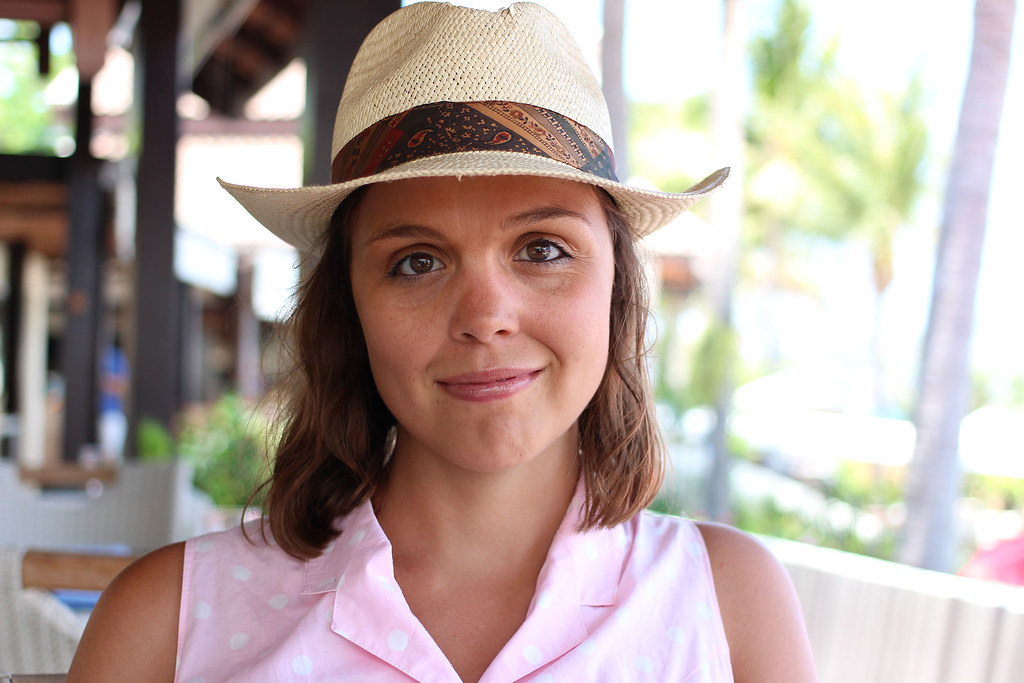

 Family Travel: How to Travel with Kids - My Golden Rules
Family Travel: How to Travel with Kids - My Golden Rules Self-Love: Self-Care Activities for Kids
Self-Love: Self-Care Activities for Kids Self-Love: In-Depth Guide to Self-Care for Kids
Self-Love: In-Depth Guide to Self-Care for Kids Books I Love: Five Kids Books That Make Us All Happy
Books I Love: Five Kids Books That Make Us All Happy Family Life: The Best Timeless Toys My Kids Play with ALL THE TIME
Family Life: The Best Timeless Toys My Kids Play with ALL THE TIME About the Blog & Frankie
About the Blog & Frankie Welcome to My Amsterdam Travel Blog!
Welcome to My Amsterdam Travel Blog! Welcome to My Luxury Family Travel Blog!
Welcome to My Luxury Family Travel Blog! Welcome to My Writing Blog!
Welcome to My Writing Blog! Lover Mother Other: Poems - Out Now!
Lover Mother Other: Poems - Out Now! I Write Stories That Move You
I Write Stories That Move You Order WriteNOW Cards - Affirmation Cards for Writers
Order WriteNOW Cards - Affirmation Cards for Writers Work With Me
Work With Me